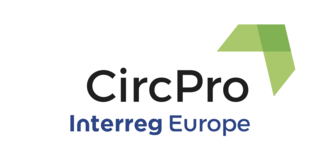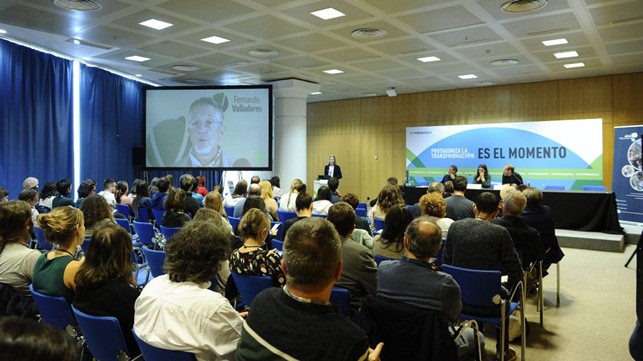On a recent study trip within the framework of the European Union project CircPro, representatives of the Tartu University Hospital in Estonia visited the hospitals in Andalusia to learn about their implementation of environmental management systems as well as their expertise on conducting circular procurements.
These concepts are important elements in the implementation of the circular economy principles, which play an increasingly important role for organisations both in the private and public sectors.
“The Tartu University Hospital development plan foresees the deployment of an environmental management system, including the efficient use of resources and sustainable waste management,” commented Priit Eelmäe, the hospital’s Chairman of the Board. “In order to do this systematically, and in a well planned manner, we have been considering implementing the EU Eco-Management and Auditing Scheme EMAS. A visit to Andalusia gave us the good opportunity to get to know Seville's hospitals' experiences on how to conduct environmental activities and procurements more efficiently and in an environmentally sound way,” Eelmäe added.
“We also saw how environmental activities are valued, starting by patients and ending with the hospital management. Moreover, the strength of the EMAS-based environmental management system is, that it is an efficient communication tool. It that helps to communicate the environmental performance of the organization to all its stakeholders by making important issues clear and showing how the hospital reduces its environmental impact. That is definitely something for us to learn from, since the Tartu University Hospital comprises also the South Estonian hospital as well as those of the towns of Põlva and Valga. Therefore, the question for us is how to implement and communicate the environmental management system throughout the group,” Eelmäe admitted.
Hospitals are important consumers and therefore also major producers of waste. Thus it is important that all its procurements are well-designed and as environmentally-friendly as possible, and that re-use and recycling are clearly preferred in waste management.
The fact that hospitals in the Andalusian region have improved their environmental performance through EMAS is also important for local authorities. “Organizations that have implemented the EMAS environmental management scheme are seen as contributors to the community,” noted Harri Moora, Program Manager at SEI Tallinn and CircPro project leader in Estonia. "Therefore, it is recognized that in addition to providing high-quality health services, hospitals also contribute to the sustainable use of the environment and resources, which is important for the local community," Moora added.
The CircPro project, having started last year and continuing up to 2023, is funded by the EU Interreg European Program. Its goal is to create better opportunities for organizing circular procurements that will preserve and prolong the value of products, materials, resources and services throughout their life cycle and minimize waste. In addition to Estonia, where the project is carried out by SEI Tallinn, organisations from Finland, Italy, Spain, Portugal, Macedonia, Bulgaria, Croatia, Lithuania and Norway participate in the project.
This article is a translation from SEI Tallinn’s press release originally published in Estonian on: https://www.sei.org/about-sei/press-room/press-releases/kliinikum-tutvus-ringmajandust-toetavate-riigihangete-korraldusega-sevilla-haiglates/














